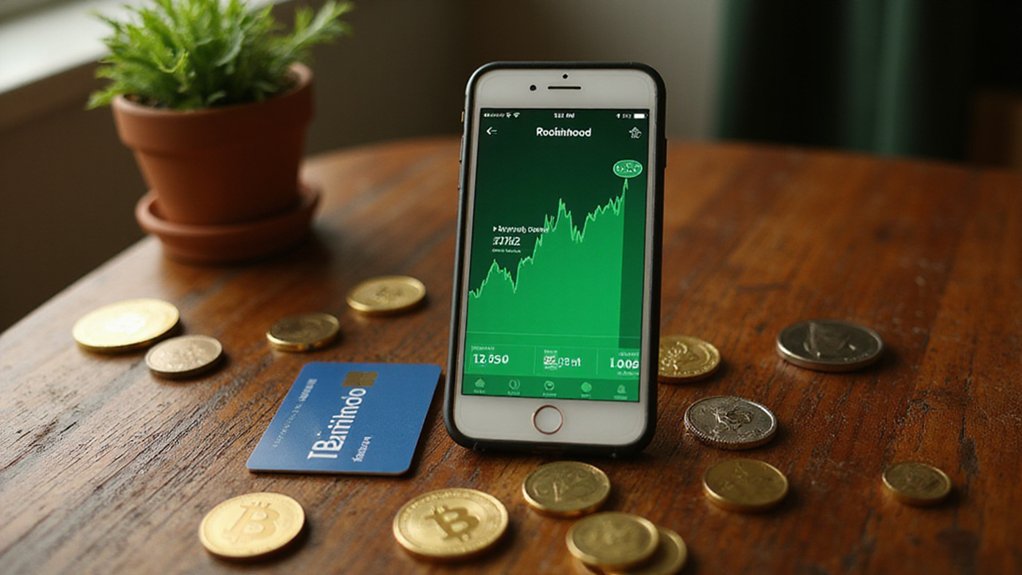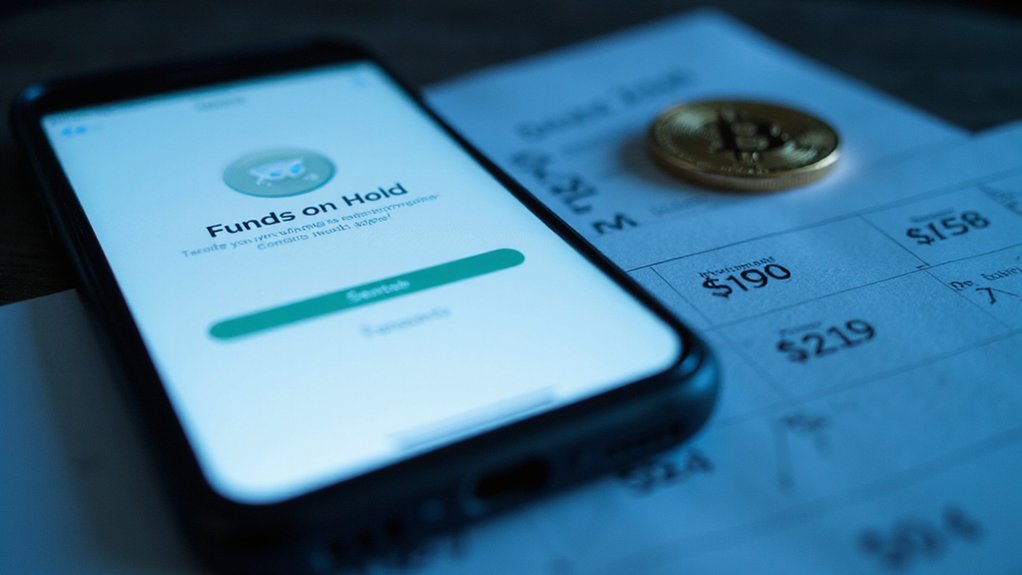Estimates of permanently lost bitcoins vary substantially among researchers, with figures ranging from 3.7 million (Chainalysis) to a staggering 7.8 million (Glassnode). Most credible analyses suggest the actual number hovers between 3-4 million bitcoins—nearly 20% of Bitcoin’s 21 million hard cap. These losses stem from forgotten passwords, misplaced private keys, and discarded hard drives, creating an inadvertent deflationary pressure that potentially enhances the value of remaining coins. The irony persists: carelessness begets scarcity, and scarcity begets value.

While Bitcoin enthusiasts might cheerfully proclaim the cryptocurrency’s virtues on social media, a rather inconvenient truth lurks beneath the blockchain’s surface: a substantial portion of the world’s Bitcoin supply has simply vanished into the digital ether.
Beneath Bitcoin’s digital utopian promise lies a stark reality: millions of coins forever lost to forgotten passwords and misplaced keys.
The decentralized architecture that gives Bitcoin its vaunted independence also makes quantifying these losses remarkably difficult, with estimates varying dramatically depending on methodological approaches.
Various research entities have attempted to calculate this digital wasteland’s magnitude.
Chainalysis suggests approximately 3.7 million Bitcoins have been lost—largely due to misplaced private keys—while Glassnode’s analysis indicates a substantially higher figure of 7.8 million.
Timothy Peterson’s work splits the difference at around 6 million.
The actual number likely falls between 3 and 4 million coins (though precision here remains elusive).
These losses, often stemming from early-adoption naïveté, have substantial market implications.
With Bitcoin’s hard cap of 21 million coins, every permanently inaccessible unit effectively reduces the available supply—potentially to as few as 17 million.
This artificial scarcity, a kind of unintentional monetary policy, theoretically enhances the value of remaining coins.
Market dynamics, after all, respond to effective supply rather than nominal totals.
The taxonomy of Bitcoin loss proves surprisingly diverse: forgotten passwords, discarded hard drives, incorrectly transmitted addresses—all represent pathways to permanent financial limbo.
Perhaps most significant are dormant wallets, including those presumed to belong to pseudonymous creator Satoshi Nakamoto, which further constrict circulatory supply.
Recent analysis challenges the assumption that all dormant wallets represent true losses, as old wallets keep waking up, causing experts to question whether the estimated 1.8 million “lost” coins are truly gone forever.
These unrecoverable coins are permanently unavailable for transactions once their private keys are lost, making them effectively removed from circulation.
The psychological impact of these permanently sequestered coins may contribute to Bitcoin’s value proposition; participants understand that with each lost coin, their holdings become incrementally rarer.
Without a proper backup system implemented, losing a private key means irreversible loss of access to Bitcoin funds due to the blockchain’s decentralized nature that prevents recovery methods.
This inadvertent deflationary mechanism—the digital equivalent of gold sinking to unretrievable ocean depths—creates a fascinating market dynamic where user carelessness paradoxically enhances collective value.
Therefore, Bitcoin’s price embodies not just market sentiment but also the cumulative consequences of a decade’s worth of misplaced private keys.
Frequently Asked Questions
Can Lost Bitcoins Ever Be Recovered?
Recovery of lost Bitcoin presents a formidable challenge, with success rates varying considerably.
Brute-force attacks rarely crack strong passwords, while hardware extraction techniques occasionally succeed with vulnerable wallet models.
While blockchain forensics can track stolen funds through transaction histories, truly lost private keys—absent from any retrievable medium—render their associated Bitcoin permanently inaccessible.
Social recovery methods and multi-signature approaches offer preventative solutions, but the grim reality remains: most of that estimated $140 billion in lost Bitcoin is likely irrecoverable.
How Do I Prevent Losing My Bitcoins?
Preventing bitcoin loss requires a multi-layered approach that sophisticated hodlers have long embraced (though newcomers often learn through costly mistakes).
Implement cold storage for significant holdings, maintain meticulous private key backups in multiple physical locations, and utilize hardware wallets with passphrase protection.
Regular recovery testing—yes, actually attempting restoration rather than merely assuming functionality—remains essential.
The judicious employment of multisignature wallets provides additional security against the all-too-common single points of failure that have rendered countless bitcoins permanently inaccessible.
Do Lost Bitcoins Affect Bitcoin’s Price?
Lost bitcoins indeed affect Bitcoin’s price through basic supply-demand mechanics.
The permanently inaccessible coins (a staggering 17-25% of all mined bitcoins) effectively reduce the circulating supply below the theoretical 21 million cap, intensifying scarcity.
This structural reduction creates upward price pressure when demand remains stable or grows.
The market gradually prices in this diminished supply, potentially amplifying volatility while simultaneously reinforcing Bitcoin’s deflationary narrative—a peculiar economic benefit conferred, ironically, through others’ misfortune.
What Happens to Lost Bitcoins in the Bitcoin Network?
Lost bitcoins remain permanently recorded on the blockchain, yet languish in a peculiar state of limbo—visible to all but accessible to none.
Without the corresponding private keys, these digital assets become permanently inaccessible, effectively removed from circulation while still technically counting toward the 21 million supply cap.
The network continues to acknowledge their existence, but they’re relegated to what one might call a financial purgatory—forever visible on the public ledger, yet forever beyond reach.
Are There Companies That Help Recover Lost Bitcoins?
Several specialized crypto recovery firms do exist, offering services for retrieving inaccessible Bitcoin wallets—though one might question their success rates with appropriate skepticism.
These companies typically focus on password recovery, hardware repair, and data restoration for corrupted wallets.
While legitimate providers employ blockchain forensics and proprietary techniques, the industry remains rife with potential scams.
The prudent investor should thoroughly vet any recovery service, preferably choosing those with transparent pricing models and no-recovery-no-fee guarantees.









